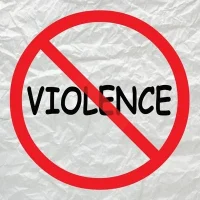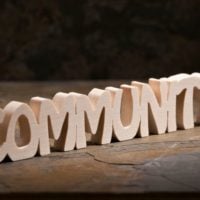UN special events and conferences serve as pivotal platforms for global dialogue, policy formulation, and collaborative action on pressing international issues. These gatherings bring together a diverse array of stakeholders, including government representatives, civil society organizations, and private sector actors, all united by a common goal: to address challenges that transcend national borders. For NGO professionals, these events are not merely opportunities for networking; they are critical moments to influence policy, share knowledge, and advocate for the communities they serve.
The outcomes of these conferences can shape international norms and standards, making it essential for NGOs to engage actively. Moreover, UN special events often spotlight specific themes or issues, such as climate change, human rights, or sustainable development. This focus allows NGOs to align their missions with global priorities, enhancing their visibility and relevance.
By participating in these events, NGOs can amplify their voices and ensure that the perspectives of marginalized communities are included in high-level discussions. The importance of these gatherings cannot be overstated; they are arenas where ideas are exchanged, partnerships are forged, and commitments are made that can lead to tangible changes on the ground.
Identifying Opportunities for NGO Engagement
To effectively engage with UN special events and conferences, NGOs must first identify the opportunities that align with their missions and objectives. This involves thorough research into upcoming events, understanding the themes being addressed, and recognizing which UN bodies or agencies are involved. Many NGOs find success by subscribing to newsletters or following social media channels of relevant UN agencies to stay informed about upcoming conferences and special events.
Additionally, platforms like the UN’s official website provide calendars of events that can be invaluable for planning purposes. Once potential events are identified, NGOs should assess how their work intersects with the themes of these gatherings. For instance, an NGO focused on women’s rights may find significant opportunities at conferences addressing gender equality or the empowerment of women.
By pinpointing these intersections, NGOs can tailor their messaging and advocacy efforts to resonate with the event’s objectives. Furthermore, engaging in preparatory meetings or consultations leading up to the event can provide insights into the priorities of other stakeholders and help NGOs position themselves strategically.
Building Relationships with UN Agencies and Member States
Establishing strong relationships with UN agencies and member states is crucial for NGOs seeking to influence policy and drive change. These relationships can be cultivated through consistent engagement, participation in relevant meetings, and collaboration on projects that align with both the NGO’s mission and the UN’s goals. Building rapport with key stakeholders can open doors to opportunities for dialogue and partnership that may not be readily available to those who remain on the periphery.
Networking at UN events is not just about exchanging business cards; it involves fostering genuine connections based on shared interests and mutual respect. NGOs should approach this process with a mindset of collaboration rather than competition. By demonstrating a commitment to shared goals—such as sustainable development or human rights—NGOs can position themselves as valuable partners in the eyes of UN agencies and member states.
This collaborative spirit can lead to joint initiatives that amplify impact and enhance visibility within the international community.
Leveraging Advocacy and Networking at UN Special Events and Conferences
Advocacy is a cornerstone of NGO engagement at UN special events and conferences. To leverage advocacy effectively, NGOs must develop clear, compelling messages that articulate their positions on key issues. This involves not only presenting data and evidence but also sharing personal stories that humanize the issues at hand.
Engaging storytelling can resonate deeply with policymakers and other stakeholders, making it easier for them to understand the real-world implications of their decisions. Networking during these events is equally important. NGOs should take advantage of informal gatherings, receptions, and breakout sessions to connect with influential figures in the UN system.
These interactions can lead to opportunities for collaboration or support for specific initiatives. Additionally, participating in panel discussions or workshops allows NGOs to showcase their expertise while also learning from others in the field. By actively engaging in both advocacy and networking, NGOs can enhance their visibility and influence within the UN ecosystem.
Showcasing NGO Work and Impact at UN Special Events and Conferences
One of the most effective ways for NGOs to engage at UN special events is by showcasing their work and demonstrating their impact. This can be achieved through various means, such as presenting case studies during panel discussions or distributing informational materials that highlight successful projects. Visual aids like infographics or videos can also be powerful tools for illustrating the tangible outcomes of an NGO’s efforts.
In addition to formal presentations, NGOs should consider hosting their own side events or exhibitions during larger conferences. These platforms allow organizations to engage directly with attendees, share their experiences, and foster discussions around their work. By effectively showcasing their impact, NGOs not only raise awareness about their missions but also position themselves as credible players in the global arena.
Participating in Side Events and Workshops
Side events and workshops are essential components of UN conferences, offering NGOs additional opportunities for engagement beyond the main sessions. These smaller gatherings often focus on specific topics or issues, allowing for more in-depth discussions and networking opportunities.
Benefits of Participating in Side Events
For NGOs, participating in these side events can be particularly beneficial for building relationships with other organizations, government representatives, and UN officials who share similar interests.
Maximizing Participation in Side Events
To maximize participation in side events, NGOs should proactively seek out opportunities to co-host or contribute to these gatherings. Collaborating with other organizations can enhance credibility and attract a larger audience. Additionally, NGOs should prepare thoroughly for these events by developing clear objectives and engaging materials that facilitate meaningful discussions.
Amplifying Voices and Gaining Insights
By actively participating in side events and workshops, NGOs can further amplify their voices while also gaining valuable insights from peers in the field.
Maximizing Resources and Partnerships for Effective Engagement
Effective engagement at UN special events requires strategic resource management and partnership development. NGOs should assess their existing resources—financial, human, and informational—and identify areas where they may need additional support. This could involve seeking funding from foundations or government grants specifically aimed at facilitating participation in international forums.
Partnerships play a crucial role in maximizing resources for engagement. By collaborating with other NGOs or academic institutions, organizations can pool resources to enhance their presence at UN events. Joint initiatives can also attract greater attention from policymakers and stakeholders who may be more inclined to support collaborative efforts that demonstrate a united front on critical issues.
Ultimately, leveraging partnerships not only amplifies an NGO’s impact but also fosters a sense of community among organizations working toward similar goals.
Navigating Challenges and Overcoming Barriers in NGO Engagement with UN Special Events and Conferences
Despite the numerous opportunities presented by UN special events and conferences, NGOs often face challenges that can hinder effective engagement. These may include limited access to decision-makers, bureaucratic hurdles within the UN system, or competition among organizations vying for attention on similar issues. To navigate these challenges successfully, NGOs must adopt a proactive approach that emphasizes resilience and adaptability.
One strategy for overcoming barriers is to build coalitions with other NGOs that share similar objectives. By presenting a united front, organizations can amplify their collective voice and increase their chances of being heard by policymakers. Additionally, staying informed about the latest developments within the UN system can help NGOs anticipate potential challenges and adapt their strategies accordingly.
Engaging in continuous learning—whether through attending training sessions or participating in webinars—can equip NGO professionals with the skills needed to navigate complex environments effectively. In conclusion, engaging with UN special events and conferences is a multifaceted endeavor that requires strategic planning, relationship-building, advocacy skills, and resource management. By understanding the importance of these gatherings, identifying opportunities for engagement, building relationships with key stakeholders, leveraging advocacy efforts, showcasing their work effectively, participating in side events, maximizing resources through partnerships, and navigating challenges adeptly, NGO professionals can significantly enhance their impact on global issues.
The potential for meaningful change is immense when organizations come together to advocate for those who are often unheard in international dialogues.









































